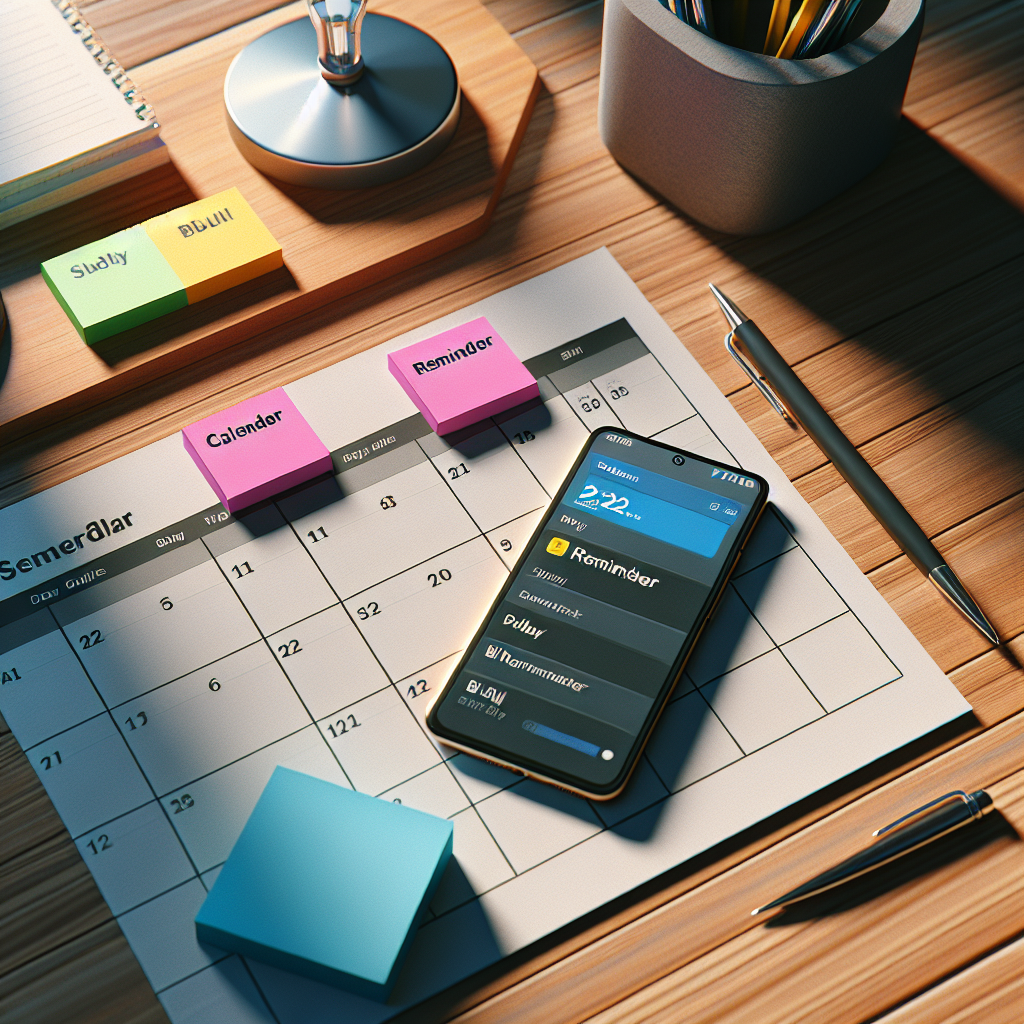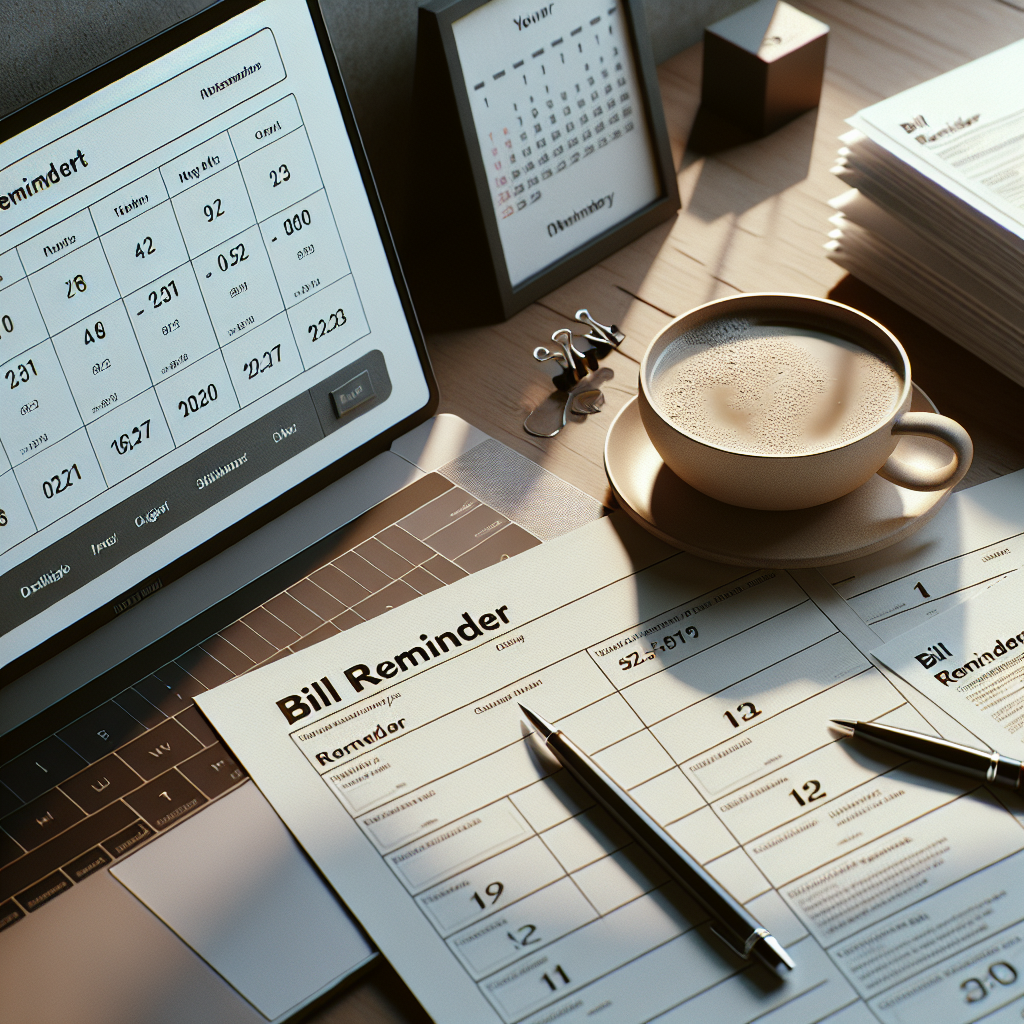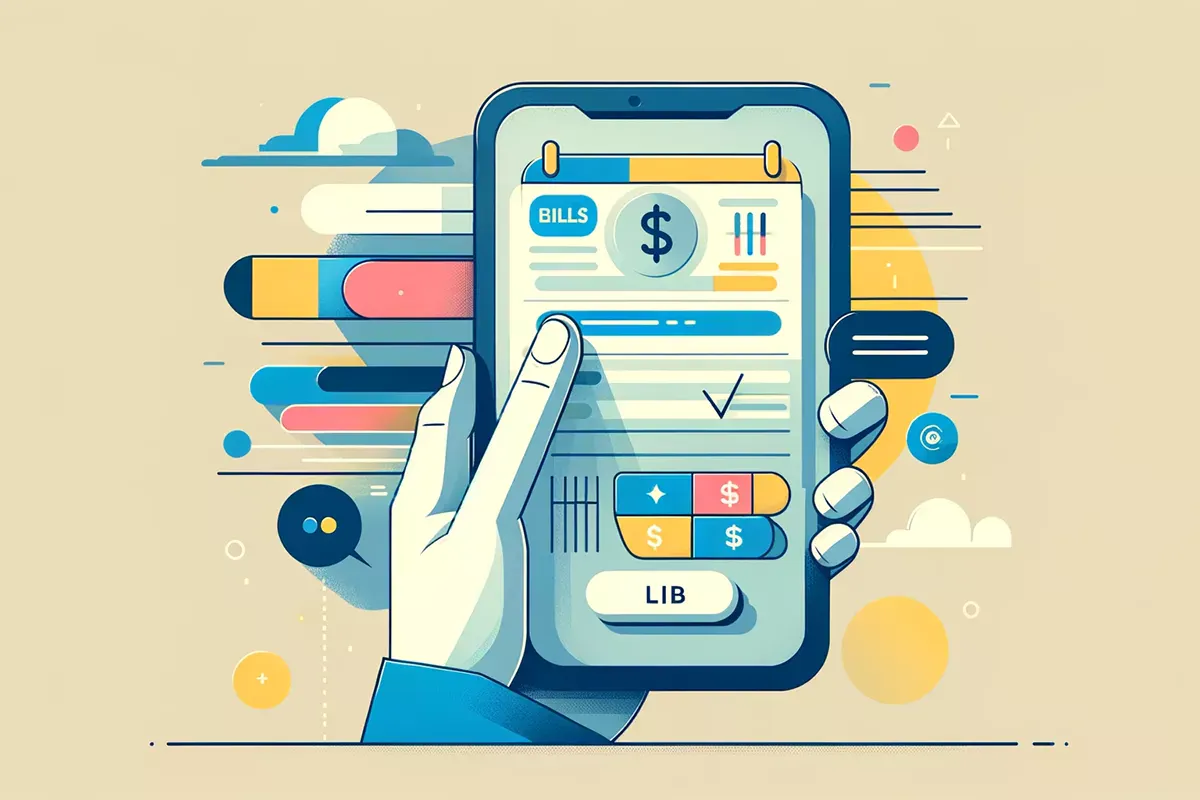Managing finances can be overwhelming, especially when it comes to keeping track of various bills and their due dates. Missing a bill payment can lead to late fees, increased interest rates, and even a negative impact on your credit score. This is where bill reminders come into play. A well-structured bill reminder system helps you stay organized, ensuring that you never miss a payment again.
Bill reminders can come in various forms, such as email alerts, SMS notifications, or mobile app notifications. These reminders not only keep you informed about upcoming due dates but also provide a sense of control over your financial obligations. By setting up effective bill reminders, you can avoid the stress associated with late payments and maintain a healthy financial status.
Whether you prefer using digital tools or traditional methods like calendars and planners, finding the right system that works for you is crucial. We’ll explore different tips and strategies to help you set up an efficient bill reminder system that fits your lifestyle and financial goals.
Ready to take control of your finances and experience effortless savings? Download Vala today and start managing your budget with ease!
Why Bill Reminders Are Important
In today’s fast-paced world, it can be easy to lose track of payment deadlines, especially when juggling multiple bills each month. This is why bill reminders are extremely important. They not only help you stay organized but also ensure that you meet your financial obligations on time. Let’s dive into the key reasons why bill reminders are essential.
1. Avoid Late Fees and Penalties: One of the most immediate benefits of setting up bill reminders is the avoidance of late fees and penalties. These additional charges can accumulate quickly, putting unnecessary strain on your budget.
2. Protect Your Credit Score: Timely payments are critical to maintaining a good credit score. Missing payments can negatively impact your credit rating, making it more difficult and expensive to obtain loans or credit in the future.
3. Reduce Stress and Anxiety: Knowing that your bills are paid on time can significantly reduce financial stress and anxiety. Bill reminders provide peace of mind, allowing you to focus on other important aspects of your life.
4. Improve Financial Planning: Consistent bill payments help you track your spending more effectively. By keeping an eye on your payment schedule, you can better plan your finances and make informed decisions about budgeting and saving.
Incorporating bill reminders into your financial routine can transform how you manage your money, offering both practical benefits and a sense of control over your finances.
Various Types Of Bill Reminders

To ensure you never miss a bill payment, it’s essential to understand the various types of bill reminders available. Each type offers unique features and benefits, allowing you to choose the one that best fits your lifestyle and preferences.
Email Reminders: Many service providers offer the option to send bill reminders via email. These reminders typically include the amount due, the due date, and a link to make a payment. Email reminders are convenient as they can be easily archived and accessed whenever needed.
SMS/Text Alerts: For those who prefer instant notifications, SMS or text alerts are an excellent option. These reminders are sent directly to your mobile phone, ensuring you receive them in real-time. This method is particularly useful for urgent reminders or last-minute payments.
Mobile App Notifications: With the rise of smartphones, many financial apps now offer in-app notifications for bill payments. Apps like Vala provide customizable alerts that can be set to notify you days or even weeks before a bill is due. This allows for greater flexibility and control over your payment schedule.
Calendar Alerts: Integrating bill reminders into your digital calendar is another effective strategy. Programs like Google Calendar or Microsoft Outlook allow you to set recurring events for your bills, ensuring you receive timely alerts. This method is ideal for those who already use digital calendars for scheduling other activities.
Physical Reminders: Although less common in the digital age, physical reminders like sticky notes or desk calendars can still be effective. Placing these reminders in visible locations can help keep bill payments top of mind.
By leveraging these various types of bill reminders, you can find the best method to stay on top of your financial obligations and avoid missing any important payments.
Setting Up Effective Bill Reminders

Setting up effective bill reminders is crucial to maintaining financial discipline and avoiding late fees. Here’s a step-by-step guide to help you create a reliable system:
1. Consolidate Your Bills: Start by making a comprehensive list of all your bills, including due dates, amounts, and payment methods. This will give you a clear overview and help you identify which reminders are necessary.
2. Choose Your Reminder Type: As discussed earlier, there are various types of bill reminders—email, SMS, mobile app notifications, calendar alerts, and physical reminders. Choose the type that best suits your lifestyle and preferences.
3. Set Up Reminders in Advance: It’s wise to set reminders a few days before the actual due date. This buffer period ensures that you have enough time to make the payment without rushing. For instance, if your bill is due on the 15th, set the reminder for the 10th.
4. Utilize Multiple Reminders: Using more than one type of reminder can provide an extra layer of security. For example, you might set a mobile app notification for a week before the due date and an SMS alert a day before. This way, you have multiple touchpoints ensuring you don’t miss the payment.
5. Automate Where Possible: Many financial institutions and service providers offer automatic payment options. Setting up auto-pay eliminates the need for manual reminders altogether. Ensure that you have sufficient funds in your account to cover these automated payments.
6. Regularly Review and Adjust: Periodically review your reminder system to ensure it remains effective. Life changes, such as new bills or changes in due dates, may necessitate adjustments to your reminder setup.
By following these steps, you can develop a robust reminder system that keeps your finances on track and helps you avoid the stress and penalties associated with missed payments.
Integrating Bill Reminders With Budgeting Tools

Integrating bill reminders with budgeting tools can significantly enhance your financial management strategy. By combining these two functionalities, you gain a comprehensive view of your financial obligations and spending patterns, making it easier to stay on top of your finances.
1. Synchronize Your Accounts: Many budgeting tools allow you to link your bank accounts, credit cards, and other financial accounts. This synchronization ensures that all your transactions are automatically recorded, and you can set up bill reminders based on real-time data from your accounts.
2. Set Up Automated Alerts: Budgeting tools often come with the feature to set up automated alerts for upcoming bills. These alerts can be customized to notify you via email, SMS, or in-app notifications, ensuring you never miss a payment.
3. Categorize Your Expenses: Effective budgeting tools allow you to categorize your expenses, including bills. By categorizing your bills, you can easily track how much you’re spending on utilities, subscriptions, loans, and other recurring payments. This helps you identify areas where you can potentially save money.
4. Monitor Cash Flow: Integrating bill reminders with budgeting tools enables you to monitor your cash flow more effectively. You can see when your bills are due in relation to your income, helping you manage your finances more strategically and avoid overdrafts or insufficient funds.
5. Plan for Future Expenses: Budgeting tools often include features that allow you to forecast future expenses. By integrating bill reminders, you can plan for upcoming bills and set aside the necessary funds in advance. This proactive approach helps you stay financially prepared and avoid last-minute scrambles for money.
6. Review and Adjust Your Budget: Regularly reviewing your budget and adjusting it based on your bill reminders ensures that your financial plan remains relevant and effective. Life changes, such as new bills or changes in income, can impact your budget, and integrating these reminders helps you stay adaptable.
By integrating bill reminders with budgeting tools, you create a holistic financial management system that not only keeps you informed about upcoming payments but also helps you make informed financial decisions. This integration empowers you to take control of your finances and achieve your financial goals more efficiently.
Best Practices For Managing Bill Payments

Effective bill management is crucial for maintaining a healthy financial life. Adopting best practices for managing bill payments can help you avoid late fees, improve your credit score, and reduce financial stress.
1. Create a Bill Payment Calendar: A dedicated calendar for bill payments helps you keep track of due dates. Whether it’s a physical calendar or a digital one, marking the dates when bills are due ensures you stay on top of your obligations.
2. Set Up Automatic Payments: Many service providers offer the option to set up automatic payments. This ensures that your bills are paid on time every month without manual intervention. Just make sure your account has sufficient funds to cover these payments.
3. Use Bill Reminder Apps: Utilizing bill reminder apps like Vala can streamline your bill management process. These apps send you notifications before your bills are due, helping you avoid missed payments and late fees.
4. Consolidate Payment Dates: If possible, try to consolidate your bill payment dates. Having fewer dates to remember makes it easier to manage your payments. Contact your service providers to see if they can adjust your billing cycle to match your preferred dates.
5. Keep a Buffer in Your Account: Maintaining a buffer amount in your bank account provides a safety net for unexpected expenses or fluctuations in your balance. This can prevent overdrafts and ensure that automatic payments go through smoothly.
6. Regularly Review Your Bills: Take the time to review your bills for any discrepancies or errors. Regular reviews help you catch mistakes early and address them before they become bigger issues.
7. Prioritize High-Interest Debts: If you have multiple bills, prioritize paying off high-interest debts first. This strategy helps you save on interest in the long run and reduces your overall financial burden.
8. Keep Digital Records: Maintaining digital records of your bills and payments can be extremely useful. Store copies of your bills and payment confirmations in a secure digital format for easy access and reference.
By following these best practices for managing bill payments, you can take control of your financial obligations and ensure timely payments. Ready to take control of your finances and experience effortless savings? Download Vala today and start managing your budget with ease!







